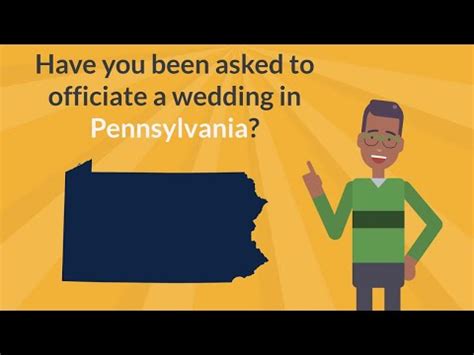Become a Certified Officiant in Pennsylvania: A Comprehensive Guide
Pennsylvania, a state rich in history and diverse landscapes, offers couples a plethora of beautiful locations to exchange vows. Becoming a certified officiant in the Keystone State opens doors to a fulfilling career, allowing you to play a significant role in celebrating love and commitment. This guide provides a comprehensive overview of the process, addressing common questions and concerns.
What are the requirements to become a certified officiant in Pennsylvania?
Pennsylvania doesn't require officiants to be "certified" in the traditional sense. There's no state-run certification program. Instead, the state legally designates individuals who can solemnize marriages through specific avenues. This primarily involves either ordination through a religious organization or commissioning by the Pennsylvania Department of Health.
1. Ordination through a Religious Organization:
This is the most common route. Numerous religious organizations, including but not limited to Christian, Jewish, and other faith-based groups, offer ordination. The process varies depending on the specific organization. Typically, it involves completing an application, potentially attending online or in-person courses, and paying a fee. Once ordained, you'll receive documentation proving your ordination status. This documentation serves as your legal authorization to officiate weddings in Pennsylvania.
2. Commissioning by the Pennsylvania Department of Health:
This route is less common. While the Department of Health doesn't directly "commission" officiants, it addresses the legal requirements surrounding marriage licenses and the individuals authorized to perform the ceremony. You won't receive a separate "commission" document, but your legal authority stems from the marriage license application process. However, this often requires an already established religious affiliation or a clear legal basis for your authority to perform the wedding.
Do I need any specific training or education to become an officiant in PA?
No specific training or education is mandated by the state of Pennsylvania. However, possessing knowledge of marriage laws, wedding etiquette, and ceremony structures is highly recommended. Many aspiring officiants opt for online courses or workshops to enhance their skills and confidence. These courses often cover:
- Pennsylvania Marriage Laws: Understanding the legal requirements for a valid marriage in PA is crucial.
- Ceremony Structure and Etiquette: Learning about traditional and non-traditional ceremony styles, appropriate language, and best practices.
- Legal Documentation: Knowing how to properly complete and file marriage certificates.
- Public Speaking and Communication Skills: Effective communication skills are vital for delivering a memorable and meaningful ceremony.
What are the legal responsibilities of a Pennsylvania officiant?
Officiants in Pennsylvania have the legal responsibility to:
- Ensure both parties are legally eligible to marry: This includes checking for age restrictions, previous marriages, and other legal impediments.
- Properly complete and file the marriage certificate: Accurate completion of the marriage certificate is essential for legal recognition of the marriage.
- Witness the signing of the certificate: The officiant must witness both parties sign the certificate.
- Submit the completed certificate to the appropriate county office: The completed certificate must be submitted within five days of the ceremony to the County Register of Wills office.
How much does it cost to become an officiant in PA?
The cost varies greatly depending on the chosen route. Ordination through a religious organization can range from free to several hundred dollars. Online courses or workshops for additional training can also incur fees. There are no direct fees associated with becoming legally authorized through the Department of Health, but any associated religious organization membership fees may apply.
How long does it take to become a certified officiant in Pennsylvania?
The timeframe depends on the chosen route. Ordination through a religious organization can be completed in a matter of days or weeks, while completing additional training courses may add time to the process. There is no waiting period specifically associated with the Department of Health's role in marriage licenses.
Where can I find more information about becoming a wedding officiant in Pennsylvania?
The Pennsylvania Department of Health website provides information regarding marriage licenses and the legal requirements for performing marriage ceremonies. You can also research various religious organizations online to explore their ordination processes. Additionally, numerous online resources offer training and guidance for aspiring officiants.
Remember, while Pennsylvania doesn't require specific certification, thorough preparation and understanding of legal responsibilities are crucial for ensuring successful and legally sound wedding ceremonies. By following these guidelines, you can embark on a rewarding journey as a Pennsylvania wedding officiant.

